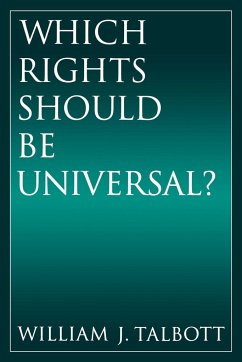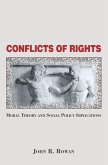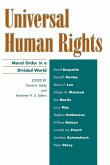How can the advocate of universal rights avoid being a moral imperialist? In this book, Talbott builds on the work of Rawls, Habermas, Mill, Sen, and Shue to explain how, over the course of history, human beings have learned how to adopt a distinctively moral standpoint from which it is possible to make universal, though not infallible, judgments of right and wrong. He explains how this distinctively moral standpoint has led to the discovery of the moral importanceof nine basic rights. His accessible book is important for debates on human rights, but also for the broader issues of moral and cultural relativism.








